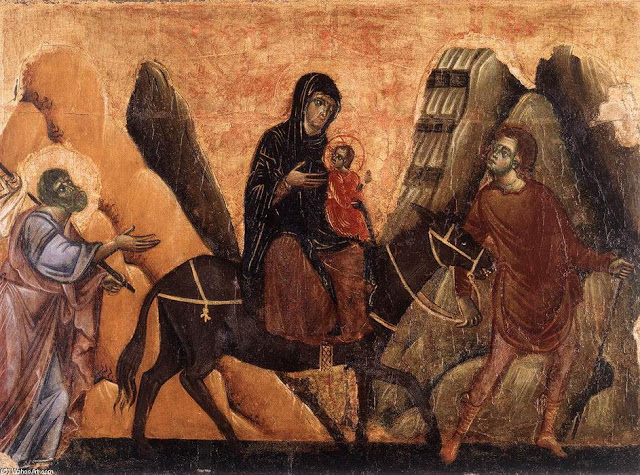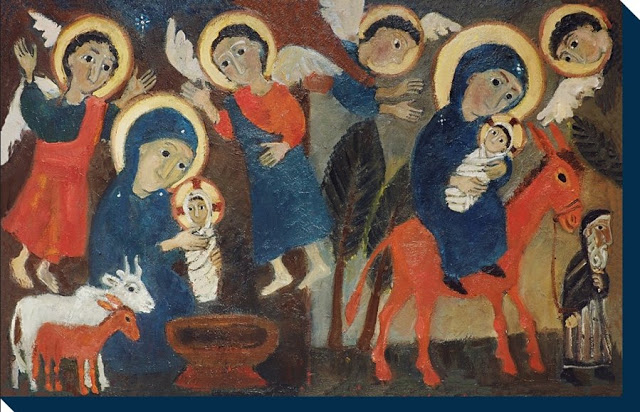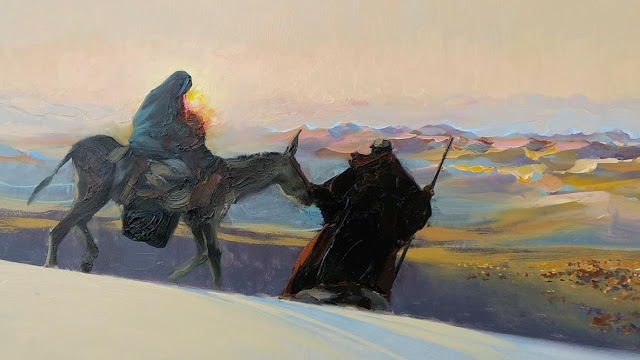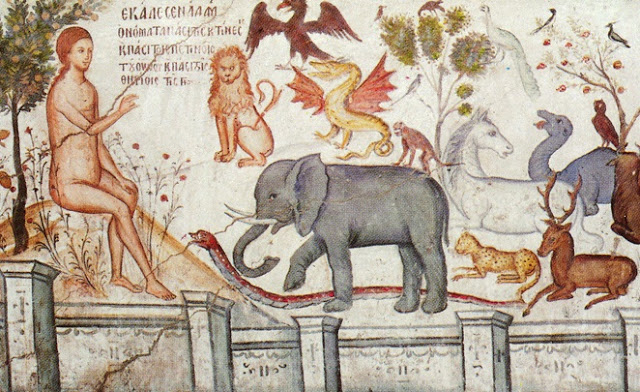
I loved him, and called my son out of Egypt (Hosea 11:1).
According to Holy Apostle Matthew’s Gospel, King Herod asked the wise men from the Orient, who had come to worship the King of Israel, to inform him about the exact location of the divine Baby, allegedly to come and worship him. However, he had ill intentions. He wanted to murder the Baby instead of worshipping him, because he was scared at the thought of losing his royal status and power.
The wise men received a revelation from God in a dream and departed into their own country another way. Note how the wise men are guided not by astronomical phenomena, like many other pagan sages, but instead receive a revelation from God like the Righteous Joseph and other virtuous men of the Old Testament. The encounter with Jesus was spiritually transformative for those men from the East.
Meanwhile, the angel of the Lord appeareth to Joseph in a dream, saying, Arise, and take the young child and his mother, and flee into Egypt, and be thou there until I bring thee word: for Herod will seek the young child to destroy him. (Matthew 2:13).

Canonical Gospels don’t describe the life of the Holy Family in Egypt; they simply state that they remained there until King Herod’s death. That’s understandable: the Gospels aren’t merely a biography of our Savior; rather, they are an icon that shows us the salvific ministry of the Messiah and his teachings about the Heavenly Kingdom.
And yet, we can learn something about the life of the divine Child and his family in Egypt from literary sources that didn’t make it into the sacred canon of the Scripture. This set of data isn’t authoritative for us neither from the doctrinal nor from historical standpoint. Anyway, those sources contain certain facts about the life of the Holy Family in Egypt, which were accepted as true by some Fathers of the Church and are even mentioned in worship texts.
1. Taming of Wild Beasts
The Gospel of Pseudo-Matthew, written in the 4th century, claims that the Holy Family was accompanied by three young men, allegedly St. Joseph’s sons, and a midwife called Salome. They had two oxen and a cart with their possessions. Along the way, they stopped at a certain cave where they intended to rest. Suddenly, many dragons came out of the cave, obviously scaring the children to death. Jesus stood on his feet before the dragons, and they also adored him and left peacefully. This also fulfilled a prophecy by David who said, Praise the Lord from the earth, ye dragons, and all deeps (cf. Ps. 148:7).

2. Destruction of Idols
According to the Gospel of Pseudo-Matthew, upon arriving in the city, Mary and Jesus went into the temple, and all the 175 idols prostrated themselves before him. In the
process, many of them broke into tiny pieces. As soon as the pagan priest who was in the temple saw the idols lying on their faces before Jesus, he confessed Jesus as Lord. This story influenced church tradition, too; in particular, Saint Cyril of Jerusalem pointed out that it was according to God’s plan that Christ went to Egypt to destroy the man-made Egyptian gods (Cathech. 10. 10). Traces of the same story can be found in various liturgical texts, too. For instance, Ikos 6 of the Akathist of the Most Holy Theotokos says, By shining in Egypt the light of truth, Thou didst dispel the darkness of falsehood; for its idols fell, O Savior, unable to endure Thy strength.
process, many of them broke into tiny pieces. As soon as the pagan priest who was in the temple saw the idols lying on their faces before Jesus, he confessed Jesus as Lord. This story influenced church tradition, too; in particular, Saint Cyril of Jerusalem pointed out that it was according to God’s plan that Christ went to Egypt to destroy the man-made Egyptian gods (Cathech. 10. 10). Traces of the same story can be found in various liturgical texts, too. For instance, Ikos 6 of the Akathist of the Most Holy Theotokos says, By shining in Egypt the light of truth, Thou didst dispel the darkness of falsehood; for its idols fell, O Savior, unable to endure Thy strength.
3. Two Thieves
According to the Arabic Infancy Gospel, which dates back to the 6th century, two thieves met the Holy Family on their road to Egypt. One of the thieves convinced the other one to let the travelers go. According to that source, they were the same two thieves who would later be crucified with the Savior, one to the right and the other to the left side of the Lord. The thief who hadn’t robbed the travelers went to the paradise.

We don’t know what miracles (if any) Baby Jesus performed in Egypt: this isn’t the main topic of the Gospel. An Orthodox Christian must feed his or her faith with the Word of God and prayer, participation in the life of the Church, and acts of love. The aforementioned narratives weren’t included in the Scripture because the Lord never works miracles for miracles’ sake. He performs miracles for our sake and for the salvation of our souls. The main lesson that we should take out of these stories and commit to memory is that I loved him, and called my son out of Egypt (Hosea 11:1). That prophecy initially referred to Jesus but we can apply it to ourselves, too. God, our Heavenly Father, has saved each and every one of us from Egypt, that spiritual land of death, thanks to his great love. He continues to deliver us, his sons and daughters, from Egypt every day and every hour. He rescues us from the snares of sin so that we could live with God in his Kingdom.



